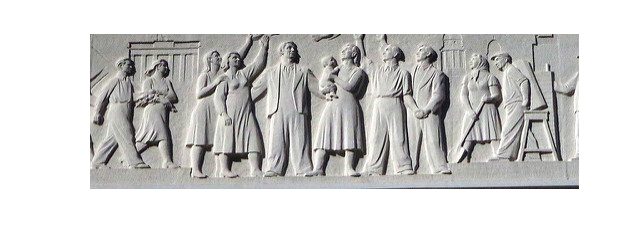Opinions
Startup Idea: E-Commerce Focused on High-end Ceramics
As with other Vision India 2020 ideas, Gagori was also originally designed as a billion dollar project. It focused on using Japanese and Italian designers working with Indian potters and ceramicists to create high-end dinner sets, vases, platters, pots, etc. You can read it here.
Once again, there is a comparable opportunity with some of the same ideas, but without the need to scale at exponential pace. You could build a set of e-commerce businesses that specifically focus on high-end ceramics.
>>>
Future of Artificial Intelligence: The Triumph of Communism?
I have written several pieces already on my deep concerns about the kind of society we’re moving towards in the next 30-50 years as technology-induced changes sweep through society, rendering hundreds of millions of people unemployable.
Future of Work: Utopia or Dystopia?
Future of Artificial Intelligence: Brexit, Trump and Other Calamities
Artificial Intelligence: Just Because We Can, Does It Mean That We Should?
Future of Artificial Intelligence: All Play, No Work Society
Future of Artificial Intelligence: Demonetization
It seems to me that the end game in this thought experiment is the triumph of communism. Let me explain.
>>>
A Startup Idea for Specialized Gift eCommerce
In Vision India 2020, there is a project called Oishi. It’s a gift e-commerce brand that has specialized capabilities for tracking occasions for gift giving, what gift was given to whom for what occasion, etc. It also has excellent merchandising such that consumers can buy unique gifts that are truly differentiated. You can read the chapter here, India’s Stylish Online Gift Retailer.
Positioned as a high-end online gift retailer, Oishi offered a unique portfolio of merchandise catering to busy, professional, but still style- and taste-conscious, women. We served as personal shoppers for this demographic, saving one of their scarcest resources: time.
Apple, Google, and Their Offshore Cash Stashes: A Proposal
Apple holds over $180 billion in offshore cash that it has hardly paid any taxes on. If they brought it back to the US, they would owe over $50 billion in taxes. Google has over $40 billion stashed away.
Big numbers. Unfair practices. What’s to be done?
I have a proposal.
Both Apple and Google are heavily invested in the digital content business, especially music and video/film. Apple’s iTunes and Google’s YouTube are excellent content distribution and consumption platforms.
There is a slight problem, however.
Content producers, very talented ones, traditionally have struggled to fund their projects.
>>>
Future of Artificial Intelligence: Demonetization
As a follow-up to my series of articles on Artificial Intelligence, my friend Som Das sent me an article by Peter Diamandis on demonetization and the “abundance” that will be created with the help of technology.
People are concerned about how AI and robotics are taking jobs and destroying livelihoods… reducing our earning capacity, and subsequently destroying the economy.
A Startup Idea Focused on Good, Home-cooked Food
The market these days is full of food related startups, especially those that are trying to deliver meals to the home. Nuances vary. Some bring in all the ingredients and a recipe to be cooked at home. Some bring ready-to-eat food.
Most are focused on scaling with gobs of venture capital.
I have a different thought.
Forget scaling.
Focus on the food.
>>>
A Startup Idea: eHarmony Of Friendships
It is common knowledge that people make friends easily in their younger years.
In school or in college, even in university, people are open, they have time, and friendships happen easily.
Later in life, people move away, have different family and professional commitments, and it simply becomes inconvenient to keep in touch at meaningful levels.
Long distance relationships are not as rewarding. You can’t share meals or go to the movies and concerts together anymore. And if you need them, your friends are not around.
And yet, making new friends that are sufficiently meaningful also becomes harder.
>>>
Future of Artificial Intelligence: All Play, No Work Society
My earlier post, Future of Work: Utopia or Dystopia? expresses concern about a jobless world. A recent The Atlantic article asks: Would a Work-free World Be So Bad?
People have speculated for centuries about a future without work, and today is no different, with academics, writers, and activists once again warning that technology is replacing human workers. Some imagine that the coming work-free world will be defined by inequality: A few wealthy people will own all the capital, and the masses will struggle in an impoverished wasteland.








